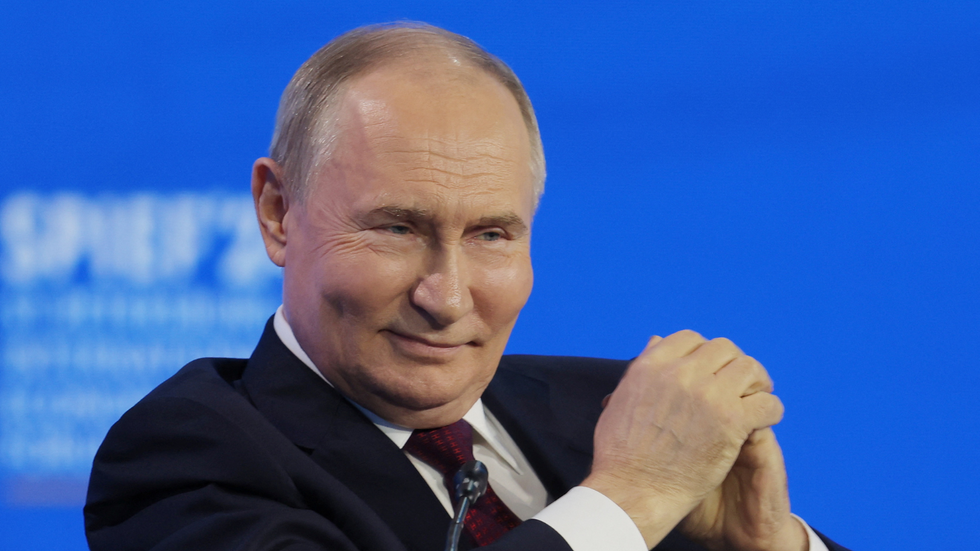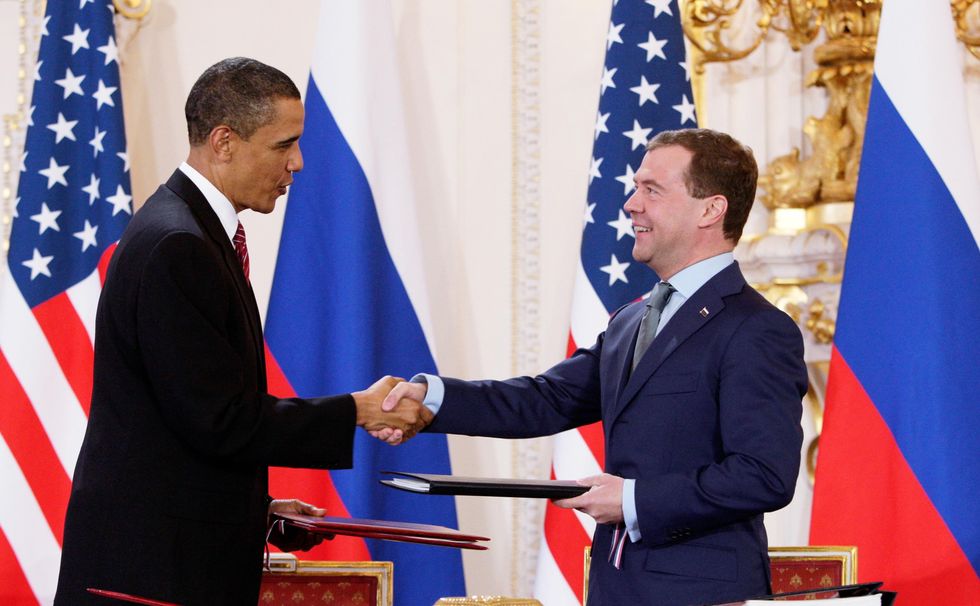Putin's 'invincible nuclear missile' launch site uncovered

The 71-year-old Russian premier claims the weapon can evade American missile defences
|REUTERS

The missile has been hailed by Vladimir Putin as 'invincible' - but Western analysts aren't so convinced
Don't Miss
Most Read
Latest
US researchers have discovered where Russia could be hiding its new nuclear-powered cruise missile, Burevestnik, using satellite imagery.
The missile has been hailed by Vladimir Putin as "invincible" with an "almost unlimited range".
The 71-year-old Russian premier claims the weapon - named Burevestnik, but dubbed SSC-X-9 Skyfall by Nato - can evade American missile defences.
But analysts in the West have disputed Putin's claims, questioning whether the rocket boasts any strategic value.
The potential launch site was discovered through images taken on July 26 by commercial satellite firm Planet Labs a little under 300 miles north of Moscow, adjacent to a nuclear warhead storage facility known as Vologda-20 or Chebsara.

Western analysts have questioned whether Putin's rocket boasts any strategic value
|REUTERS
The discovery, as revealed by Reuters, hints that Russia is proceeding with the missile's deployment - despite a series of problematic tests in recent years, one of which has earned it the humiliating moniker the "flying Chernobyl".
Decker Eveleth from the Center for Naval Analyses (CNA) identified a litany launch pads under construction in the satellite imagery, protected by banks of raised earth for protection against attacks or accidental detonations.
Eveleth said the site is designed "for a large, fixed missile system - and the only large, fixed missile system that they're currently developing is the Skyfall."
While Jeffery Lewis of the Middlebury Institute of International Studies agreed, saying that the satellite imagery "suggests something very unique, very different."
LATEST ON PUTIN'S RUSSIA:

The discovery hints that Russia is proceeding with the missile's deployment - despite a series of problematic tests
| ReutersNeither Russian officials nor US intelligence sources have yet commented on the findings - but prior evidence suggests it might be a while before the West has to worry.
The "Skyfall" has a poor test record, with just two partial successes out of at least 13 known tests since 2016, according to the Nuclear Threat Initiative.
In 2019, a recovery of one of the missiles went wrong when the weapon exploded, leaving an unshielded nuclear reactor "smouldering" on the floor of the White Sea, in the Arctic, for an entire year.
Its record has attracted jibes from analysts abroad - Thomas Countryman from the Arms Control Association called it "a uniquely stupid weapon system" and "a flying Chernobyl that poses more threat to Russia than it does to other countries".

The missile isn't banned under a bilateral US-Russian nuclear weapons reduction deal signed in 2010
|WIKIMEDIA COMMONS/KREMLIN
Scientists have expressed their scepticism about Putin's claims on his missile's capabilities - many say its range stretches to around 15,000 miles - but have noted how its subsonic speed would make it detectable.
Hans Kristensen of the Federation of American Scientists stated: "It's going to be as vulnerable as any cruise missile. The longer it flies, the more vulnerable it becomes - because there is more time to track it."
The missile isn't banned under the New Start treaty, the bilateral US-Russian nuclear weapons reduction accord signed in 2010 which expires in February 2026.
But iin the wake of its invasion of Ukraine, Russia hasn't picked up the phone for talks on replacing or renewing the agreement.










